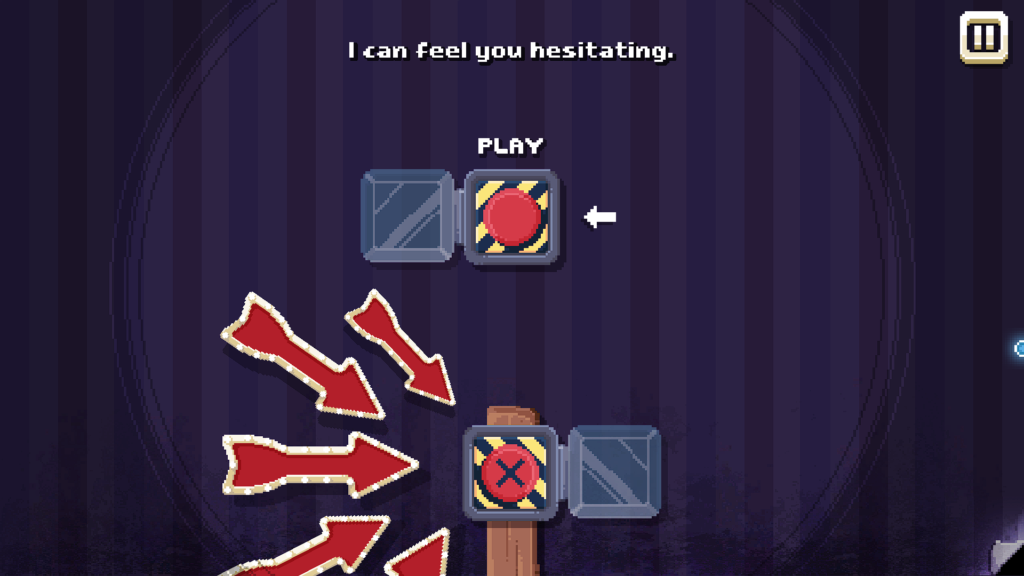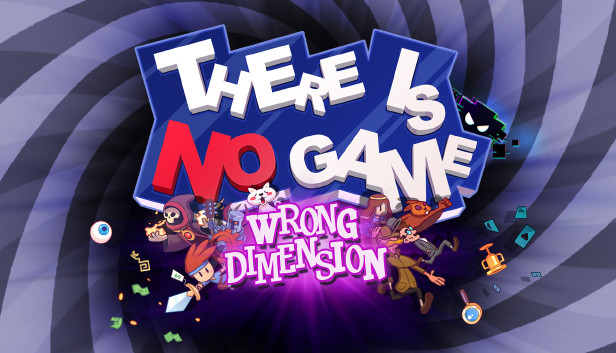Even before you even launch it, There Is No Game insists that there is, indeed, no game. Its introduction seems to say the same thing–it opens with curtains, an orchestra tuning, and various props coming in on ropes or duck-taped boards of wood. It presents itself more as a play than it does a game, further demonstrating again that it is not, or at least, “not”.
Mr. Glitch and his evil plan technically drive the plot forwards–but that plan never gets explained. It gets tossed to the wayside as a running gag where he gets interrupted every time he monologues about it, and even when he wreaks havoc on the real world, we as players never get to know why. The real focus of the game instead hones in on Game and GiGi (Global Gameplay)–it cares about the characters, the people. Game is, literally, the game, and the goal is to find the gameplay.
This is the commentary made by There Is No Game. The graphics don’t really matter–a lot of the game is drawn in pixel art and we never see Game or GiGi–and neither does the plot, considering we know next to nothing about Mr. Glitch’s goals. What matters is the characters and their relationships, Game, GiGi, the Creator, and, of course, the user themselves. Game gives commentary to keep players entertained–things he says function as hints for what to do in levels, and it’s GiGi’s lyrics that give direct directions on how to beat Chapter 5. The characters are what makes the game function, and also what makes it fun.
That’s why at the end of the game, when given the option to either finally play the game or to protect humanity from Mr. Glitch, I–and most players, I’m sure–chose the game, and was even happy to see Mr. Glitch, because he’s one of the characters too, and his relationship with us and Game is just as much part of the gameplay as everyone else.



I also think it is the characters that make the game function. The game would not be enjoyable if it were any different. I think it is really interesting how the focus of the game is not really on the game at all.
I found it really interesting how the game starts off with the narrator being pretty rude, and yet I somehow found myself becoming sympathetic towards them (and other characters like Mr. Glitch) despite being actively scolded and otherwise treated rudely by them. You also raise the interesting point that Game’s commentary actually contains hints hidden within the urges to stop playing the game – I found that to be a really effective way to help the player navigate the game and still progress through it in a way compatible with the game’s intention.